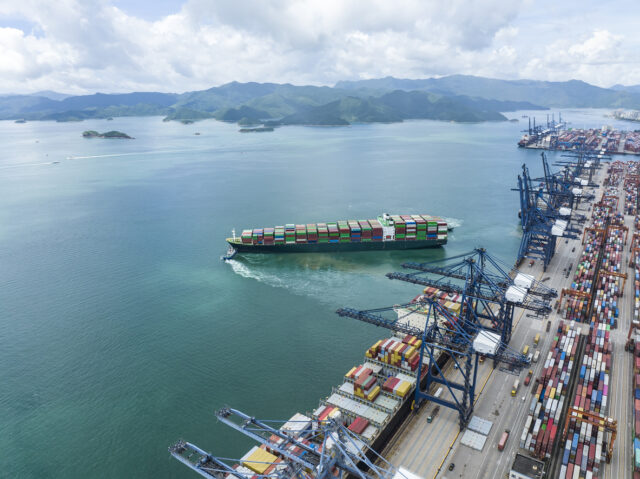Decades of buying strategies driven by the only objective of reducing costs have rendered companies vulnerable to all kinds of pandemics such as the one of Covid-19. Elvire Regnier-Lussier expresses this point of view in an opinion article published in the French newspaper “Le Monde”
For decades, companies’ procurement departments have been instructed to reduce the negotiated costs when signing contracts with their suppliers. This was the result expected from lead buyers, who were then evaluated and proportionally rewarded along the amount of savings which had been made. To achieve this, the method used was the systematic and head-to-head forced competition between suppliers.
With globalization accelerating, suppliers coming from countries with low production costs entered the race, proposing lower prices each time. Western manufacturers had no choice but to align their prices to their competitors’ offers in hope of keeping their clients. This scorched earth policy has been very effective for the suppliers coming from the countries with low production costs : they just had to wait for western manufacturers to close down their factories caused by their inability to continue on lowering their prices.
Even if buyers hadn’t already deliberately chosen to source from these kinds of countries – one of the numerous strategies being promoted in procurement schools through the “Low Cost Country Sourcing” Strategy – they no longer had any choice, the western manufacturers having disappeared due to them having to file for bankruptcy. Destruction of the western industrial system Yet, there are thousands of reasons not to buy goods at the lowest price possible.
The issue is that it is impossible to quantify all of these reasons, their impact on the Profit and Loss scale being not always clear and sometimes impossible to isolate. How could we have merely envisioned the impact on P&L of an extremely contagious virus, which would lead to the halt of the world economy in a matter of weeks due to the outsourcing of the production line caused by a quest in the reduction of costs? Even if this risk was taken into consideration by a buyer when making his calculations, who would have believed him? Today, the world economy finds itself in front of the unthinkable, the unimaginable and the unquantifiable.
A report from the study office Dun & Bradstreet indicates that amongst the Top 1 000 world companies, 938 have a 1st or 2nd rank supplier which is impacted by the Covid-19! Decades of buying strategies oriented towards the reduction of costs and of relentless competition have contributed to the destruction of the western industrial system benefiting countries with low production costs. Today, these decisions have led to disastrous consequences which have arisen without notice. Yet a different approach does exist.
It consists of considering the “Total Cost of OwnershipTCO” before deciding to grant a contract to a supplier. Beyond only taking into consideration prices, it consists of considering the costs in their entirety, meaning internal costs linked to usage of the good which will be bought, as well as the costs shared between the client and the supplier, the cost of some unpredictable risks, the value of innovation, etc. A time of reconstruction is awaiting us.
This Total Cost approach, if well performed, can lead to the decision of granting a contract to a supplier with higher prices compared to his competitors. As a matter of fact, a more costly offer can prevent future additional costs since it can provide more effective services, a more suitable packaging or the avoidance of certain risks.
Nowadays, in the mist of the Covid-19 crisis, the companies which have taken into consideration the costs and not only the prices, as well as having built their buying strategies in collaboration with their suppliers, while acting respectfully towards them, benefit from supply chains being considerably more resilient. These companies will have the capacity to bounce back, while the ones centred on prices will have added difficulties.
The Covid-19 crisis will force companies to invest years of work and billions of euros into the reconstruction of what has been destroyed due to, in most cases, their decision to limit themselves in only taking into consideration the impact of P & L. The reconstruction work which awaits us will only be fruitful with a drastic change in the way we source our suppliers. We will need to develop true partnerships, share the stakes and risks with our suppliers, whether they are financial, social or environmental.
For a more creative cooperation this approach isn’t always the one put forward by companies. Sometimes we see power relationships as essential. Even if we try to prevent our dependence upon China, the issue will no longer be the geographical distancing but the atmosphere of tension and the power relationship which can exist between a company and its partners or suppliers even if they are only a few miles apart. Sometimes companies fuel a chronic defiance towards their suppliers, partners and subcontractors.
History in its entirety, and not only the recent events, proves us that innovation arises in most cases when a harmonious collaboration exists between partners, resulting in an efficient distribution of value. This win-win contract will only be possible through dialogue, transparency and mutual confidence. The idea that 70% of innovation should come from suppliers is not new, time has come to make it happen.
Building the most transparent ecosystem possible However, we need to keep our mind open enough to have the humbleness to accept, the desire to take advantage of and the willingness to build with our innovative partners a truly transparent ecosystem, where each and every individual’s role is well defined, as well as the allocation of profits. In this field, unlike in others, the statesman is powerless.
Cooperative spirit cannot be decreed or impose itself. It is something practical. We can only urge our top executives’ strategy, development, finance and procurement departments to change their point of views and mindsets, to have them shift towards this modern inclusive and collaborative spirit. If this change is not operated, we will continue on carrying this burden for the years to come, inevitably forcing us to gradually but surely lose strength and resilience in the global economic race.

Elvire has an international procurement career in several sectors such as FMCG, Construction, Chemicals and Energy. She served Colgate in NY as Global Procurement Director Personal Care. In 2011 she joined Unilever as Global VP of the “Partner to Win” program. In 2013 she became Avril (Energy, Chemicals) CPO.











